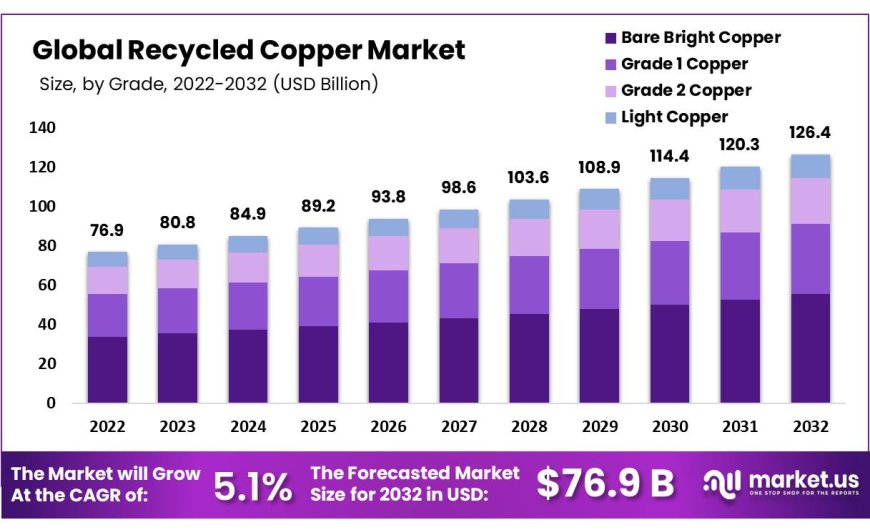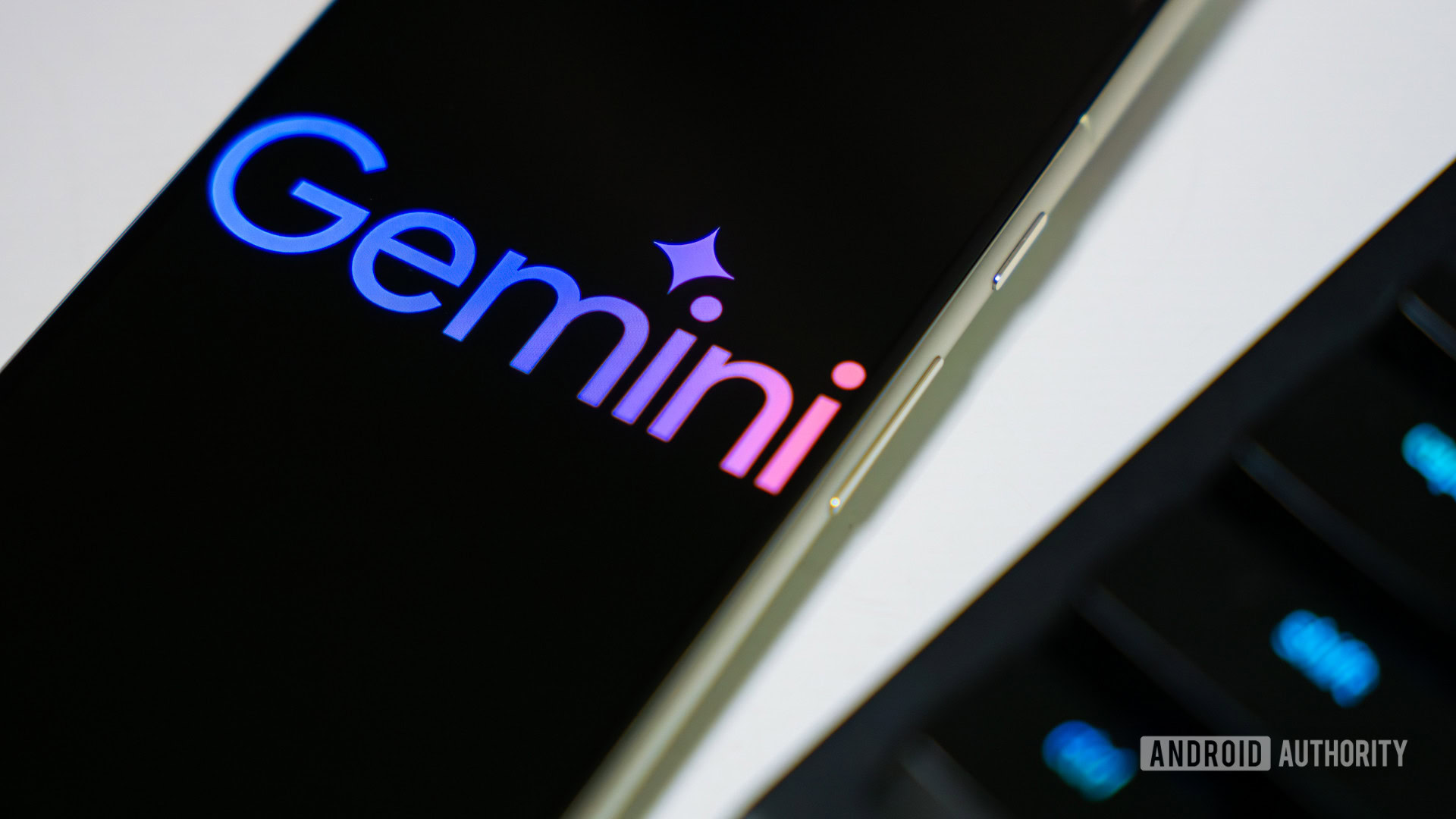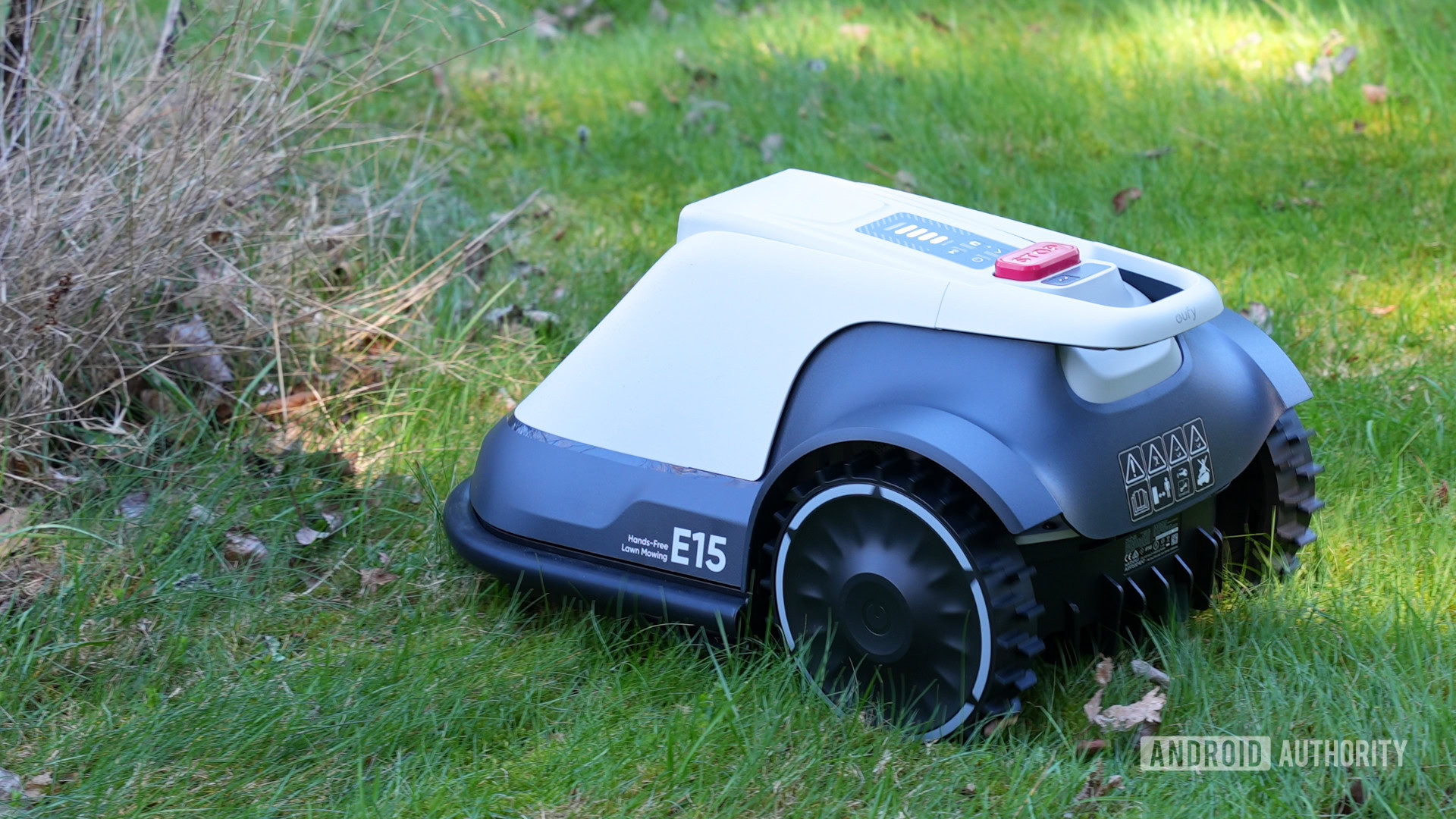Recycled Copper Market 2023 In-depth Assessment, Key Trend, Industry Drivers, Future Roadmap by 2032
In 2022, the Global Recycled Copper Market was valued at USD 76.9 Billion. This figure is projected to increase annually until 2032 at a compound annual growth rate of 5.1%.

Market Analysis
The Recycled Copper Market is anticipated to experience consistent growth in the near future due to an array of factors, such as increasing concerns regarding environmental sustainability, government initiatives promoting recycling initiatives, and widespread utilization of recycled copper in electrical & electronics sectors. Furthermore, key market players are investing in new technologies and expanding operations to meet this rising demand for recycled copper.
In 2022, the Global Recycled Copper Market was valued at USD 76.9 Billion. This figure is projected to increase annually until 2032 at a compound annual growth rate of 5.1%.
Download a complimentary PDF sample of our detailed report: https://market.us/report/recycled-copper-market/request-sample/
Recycled Copper Market Analysis:
Drivers:
- Environment Concerns: Copper recycling is an environmentally sustainable alternative to primary copper production, using up to 90% less energy and producing significantly fewer greenhouse gas emissions. As consumers, businesses, and governments around the world strive to reduce their environmental impact, copper recycling has become more of an interest than ever.
- Government Regulations: Governments across the globe are adopting policies and regulations that promote recycling and use of recycled materials, for instance the European Union has set an ambitious goal of recycling 85% of copper waste by 2030.
- Growing Demand for Copper: Copper is an indispensable material used in numerous industries such as construction, electronics and transportation - this growing demand has lead to an increase in recycled copper products being purchased by these sectors.
- Technological Advancements: Technological advancements in copper recycling are making the process more efficient and cost-effective, which has helped bring down recycled copper costs and make it more competitive with primary copper sources.
Restrictions:
- Copper Scrap Export Restrictions: Some countries restrict or ban the export of copper scrap to protect domestic supplies. Turkey and Indonesia, for instance, both imposed export restrictions in recent years on copper scrap.
- Import Restrictions: In an effort to safeguard domestic industries or reduce pollution, certain countries impose import restrictions on copper scrap imports; China for instance has strict impurity levels on imported copper scrap.
- Environmental Regulations: Environmental regulations can also impede the recycled copper market. For instance, certain countries impose regulations restricting certain impurities that can be found in recycled copper products.
- Technical Limitations: Unfortunately, recycled copper has some technical restrictions when used in specific applications, for instance primary copper smelters can only utilize a certain percentage of scrap in their feedstock.
Opportunities:
- Rising demand for copper: Copper's versatility means it has wide applications across several sectors of industry - construction, electronics and transportation being just three examples of applications for copper metal. As demand continues to increase, recycled copper demand will increase accordingly.
- Environmental Concerns: Copper recycling is a much more eco-friendly option than mining and smelting virgin copper, requiring less energy consumption and emitting less greenhouse gasses into the environment. Businesses and consumers increasingly recognize its environmental advantages; as they become aware of their activities' environmental footprint, more are turning towards recycled copper as part of their sustainable practices.
- Government Support: Governments around the world have taken measures to promote copper recycling, including tax breaks and subsidies as well as awareness campaigns.
- Copper Scrap Collection: Copper scrap can be collected from various sources such as construction sites, electronics repair shops and demolition sites. Businesses may invest in collecting copper scrap and selling it off to copper recycling plants for recycling purposes.
Challenges:
- Widespread Scrap Availability: Copper is an extremely durable metal that often outlives its intended lifespan; thus it may take many years before enough copper scrap is collected for recycling; in addition, some copper waste may go to landfills or incinerators and is thus lost forever.Copper scrap can vary dramatically in its quality depending on its source and handling, making processing challenging and expensive.
- Scrap quality: Copper scrap can vary widely in quality, depending on its source and how it has been handled. This can make it difficult and expensive to process.
- Technical Constraints: Due to impurities present in copper scrap, there are technical restrictions limiting how much can be utilized by copper smelters for recycling purposes. This is because copper scrap may compromise the final quality of its final product.
- Economic Considerations: Recycled copper prices are directly tied to primary copper prices, meaning fluctuations in either can drastically alter its profitability of production.
Key Market Segments
Based on Grade
- Bare Bright Copper
- Grade 1 Copper
- Grade 2 Copper
- Light Copper
Based on Source
- New Scrap
- Old Scrap
Based on End-Use
- Energy & Power
- Electrical & Electronics
- Transportation
- Building & Construction
- Machinery & Equipment
- Others
Market Key Players
- Glencore
- Aurubis Olen nv
- Umicore N.V.
- Kuusakoski Oy
- Commercial Metals Company
- Schnitzer Steel Industries, Inc.
- Sims Limited
- Pacific Metal Group
- OmniSource, LLC
- Elgin Recycling
- Aaron Metals
- Wilton Waste Recycling
- SA Recycling LLC
- LKM Recycling
- Reukema
- Jain Metal Group
- Copper Recycling Company
- SGNCO Green Resources Limited
- Nirvana Recycling Pvt. Ltd.
- Cohen Recycling
- Wieland Group
- Other Key Players
Browse More Report:
https://www.fuzia.com/article_detail/808578/platinum-group-metals-pgms-market-2023-key-business
Contact us
Global Business Development Team: Market.us
Market.us (Powered By Prudor Pvt. Ltd.)
Send Email: inquiry@market.us
Address: 420 Lexington Avenue, Suite 300 New York City, NY 10170, United States
Tel: +1 718 618 4351, +91 78878 22626
What's Your Reaction?
 Like
0
Like
0
 Dislike
0
Dislike
0
 Love
0
Love
0
 Funny
0
Funny
0
 Angry
0
Angry
0
 Sad
0
Sad
0
 Wow
0
Wow
0






















































